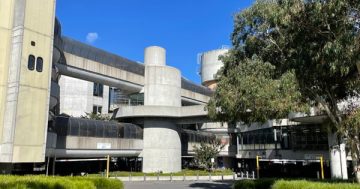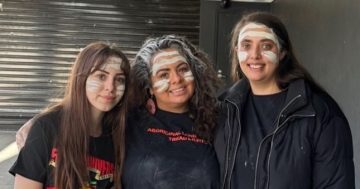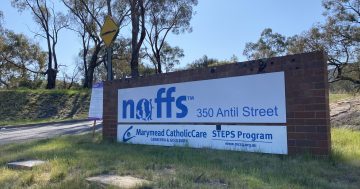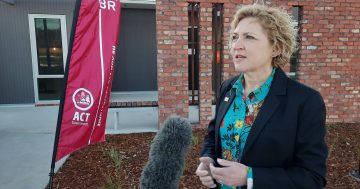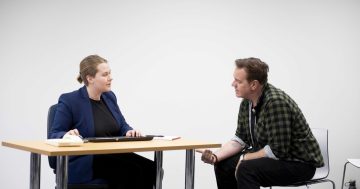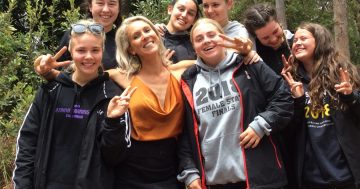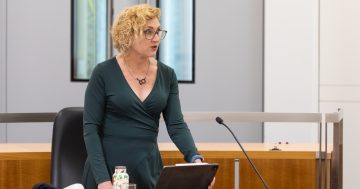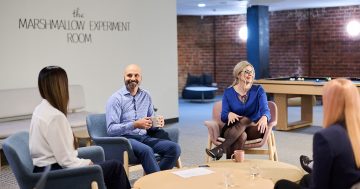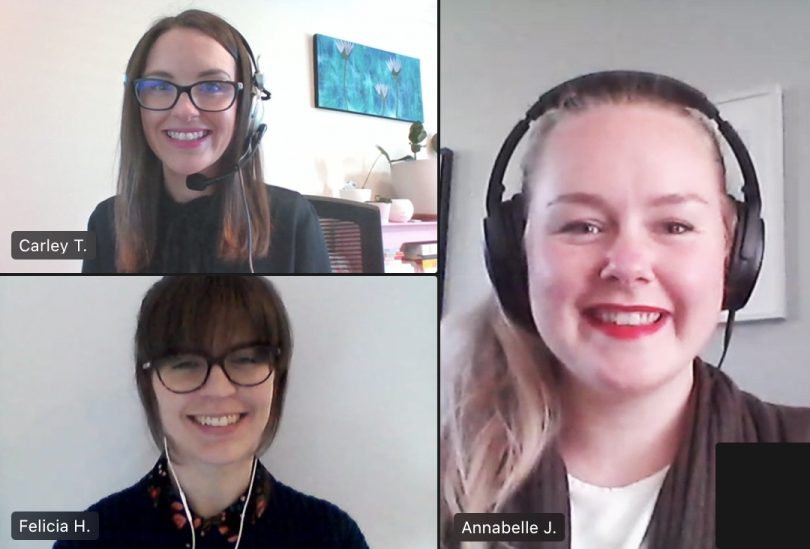
Marymead team members, including Carley Thomas, Felicia Hewlett and Annabelle Jeffries, have created flexible online programs to ensure their services are still delivered to those most in need. Photo: Region Media.
From scavenger hunts to yoga, Marymead mental health clinicians are finding new ways to connect with their younger clients in the virtual world.
With school children spending more time than ever looking at screens during lockdowns, the challenge for mental health clinician Felicia Hewlett during the COVID-19 restrictions has been finding ways to keep her young clients engaged and physically active.
“I mainly work with primary school-aged children, so I’ve had to tailor the online sessions to what the client needs, while making them fun,” Felicia said.
“We do yoga and progressive muscle relaxation to assist with anxiety.
“Games like Simon Says can really help in making progressive muscle relaxation fun and kid-friendly when online.
“For emotional regulation, we’ve introduced scavenger hunts where the client has to find something that makes them feel happy, silly, frustrated or calm when they’re feeling sad, and we talk about those feelings.”
Felicia says scavenger hunts get kids off their chairs and get their legs moving, while also providing opportunities to develop cognitive skills including planning, attention shifting and flexible thinking.
“Scavenger hunts are highly customisable and can incorporate therapeutic goals but, most importantly, they’re simply fun – and opportunities for fun are never enough during lockdown,” she added.
Mental Health and Wellbeing Unit manager Carley Thomas said the number of children aged under 11 years referred to Marymead has increased over the past three years and the team endeavours to provide accessible solutions to young people as well as their families and caregivers.
“Working with young children is even more challenging online, but we’ve been able to be innovative with how we do that,” she said.
“We’re working with families to build relationships and reduce the impact of moving from face-to-face to online support.”
Carley says a lot of kids have regressed during the lockdowns so, where possible, some clinicians have also been able to conduct one-on-one outdoor walking sessions with their clients providing essential exercise and vitamin D.
Marymead has also set up virtual therapy rooms that clinicians can use during sessions with their clients and that young people can access on their own at any time.
Team leader Annabelle Jeffries said the online space gives kids access to a range of resources such as quizzes, games and links they can use outside of therapy if they’re feeling lonely, anxious or sad.
But lockdowns have seen some positive results for clients as meetings face-to-face in parks or virtually at home have made some kids feel more comfortable.
“Using her device, one client took me to a pillow fort she’d made and, because she’s brought me into her world, she was able to open up more than ever,” Annabelle said.
“While the lockdown is tough, the therapeutic benefits have actually increased in some ways.”
Felicia said with many parents in lockdown working from home, the opportunities for clinicians to connect with family members has also increased.
“One parent shared with me the difficulties and financial hardship they were facing during lockdown, so I was able to find out what they needed and get into contact with other services to find that extra support,” she said.
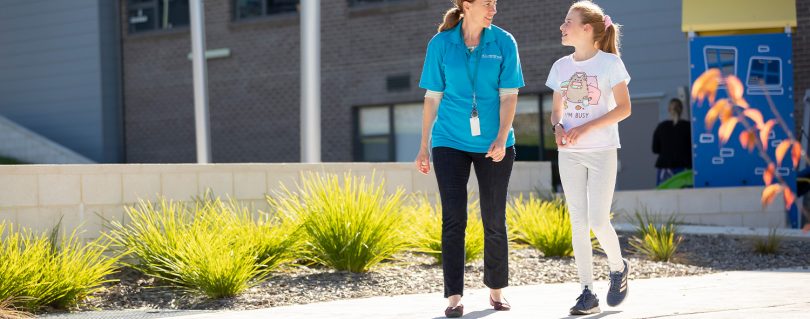
Marymead’s New Horizons program is a holistic service for young people and their families. Photo: Marymead.
Marymead’s New Horizons program provides early intervention and outreach mental health services for children and young people.
The service provides wrap-around support and education to children, their family members, teachers and other key supports.
The observed need of New Horizons can be demonstrated through 60 to 80 per cent of children on their waiting list showing symptoms of anxiety and depression which is often mirrored by their caregiver.
Marymead is partnering with ACT Health and the Office of Mental Health to roll out a new youth mental health portal in October.
The one-stop shop will help young people access information and navigate Canberra’s mental health sector.
Marymead has been delivering a range of high-quality family support services to children, young people and their families since 1967.
With offices in Canberra and in NSW at Goulburn, Moruya, Young and Wagga Wagga, Marymead’s programs and services include child and family counselling, early intervention programs, foster care and changeover services for separated parents in significant conflict.
Marymead also offers innovated, person-centred support services for people with disability and their families. These services include short-term accommodation, after-school care and school holiday programs, skills development, recreation groups and in-home support.
Young people and their families who are struggling can seek help by calling 6162 5800 or via the Marymead website.












